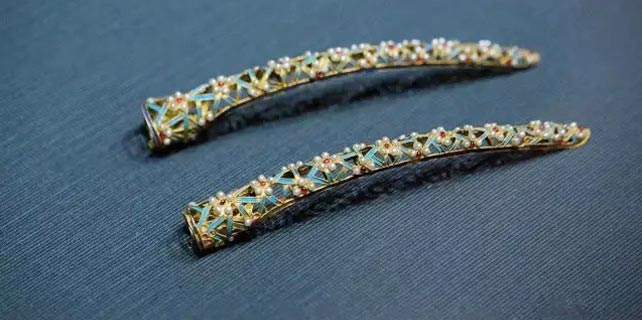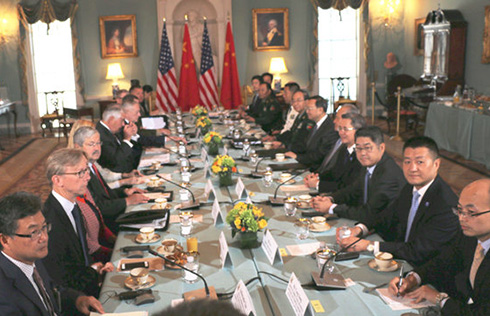US companies finding niches in China
When Ocean Spray made its move into the Chinese market two years ago, it didn't realize one of its products would be so popular with young women working in offices: dried cranberries.
Ocean Spray was one of a wide array of American small- and medium-sized enterprises (SMEs) at the Gateway '17 summit that was encouraged to pursue the colossal Chinese middle class market and its desire for overseas high-quality products.
Other businesses at the summit, including baby and maternity, beauty and skin care, agriculture, apparel and seafood, were represented Wednesday at the two-day summit that started on Tuesday. A highlight of the event was a stirring speech by Jack Ma, Alibaba Group Holdings Ltd executive chairman and co-founder, whose company is a driving force for US companies selling products in China online.
Ocean Spray, headquartered in Lakeville-Middleboro, Massachusetts, started its sale of cranberry drinks, juices and dried fruit to Chinese consumers approximately two years ago, and "products are so well received in China that it accounted for almost 7 percent of our total yearly sales," said Cheryl Sullivan, Ocean Spray e-commerce director. "We enjoyed double-digit growth each year in China."
Mandy Xi, in charges of day-to-day operations for Ocean Spray's Tmall store, said data analysis from the store site enabled the company to shift marketing strategy more effectively.
"We now know who visited our site, what items are checked often, and how many visitors had converted to buyers," she said, adding that the most popular product is the 48-ounce dried cranberries now priced at RMB75, or $11.
"Office women around the age of 30 intend to eat dried cranberries between 11 am and lunchtime; many of them we would consider healthy eaters," Xi said.
Many first movers among the US SMEs, which have taken advantage of the platform and data-driver intelligence provided by e-commerce giant Alibaba, pledged to deepen their operations in the world's most populous nation.
Gerber, the Michigan-based baby food brand with more than 90 years of history, decided to open an Alibaba Tmall flagship store in November 2015 to directly sell to food safety-conscious Chinese families and parents.
"We chose to team with Alibaba, a trusted partner in China" to promote product lines, Bill Partyka, president and CEO of Gerber, said on Wednesday.
The business has been brisk so far, and the Chinese market sales are "doing extremely well", said Peter Magnus Cariaga, head of Gerber's international business, who added that the most popular items are organic baby cereals, fruit and vegetable purees, similar to the American market.
Partyaka confirmed that Gerber will make global expansion a key future strategy, given its success in China through technology collaborations with Alibaba and its online shopping ecosystem. International retail sales are a considerable portion of the company's plans, he said.
Ma spoke to the packed auditorium and cautioned attendees: "Don't miss the Chinese market, because China now has 300 million middle class, and the number will double in the next five years. Don't miss the chance. If you are not globalized enough that you know how to do business through the internet, you are out of business."
In 2016, Chinese retail shoppers spent roughly $5 trillion, and the United States remained the second most popular country of origin for products imported and sold through e-commerce platforms.
The market is always smarter than us, said Ma, when asked what he projects would be the future best-selling American products in China. "American SMEs need to study the Chinese market, just like what we Chinese companies have been doing with the US market," he said.
Contact the writer at junechang@chinadailyusa.com
















